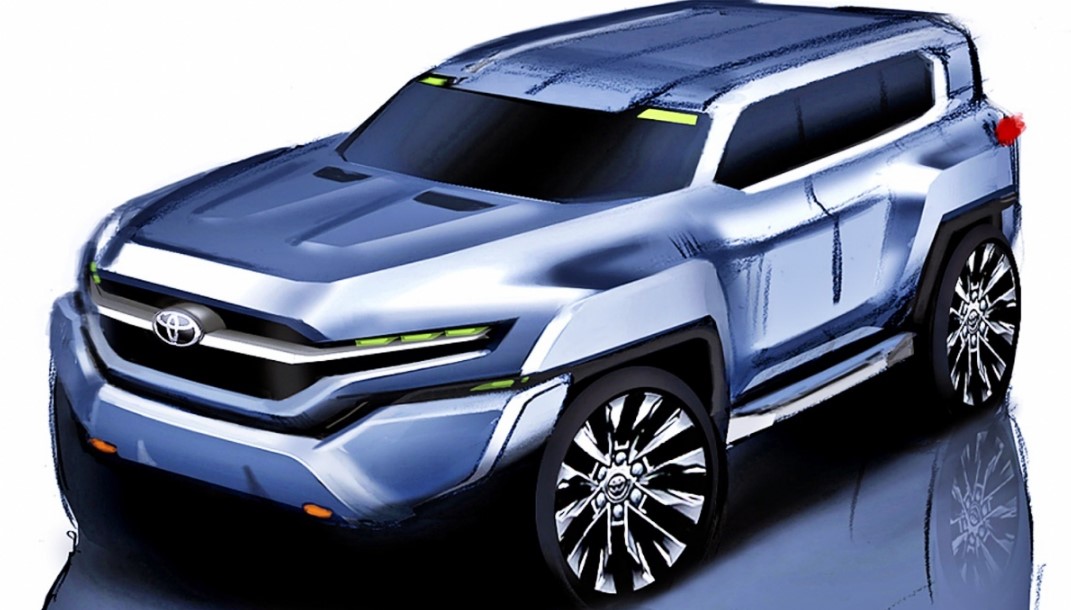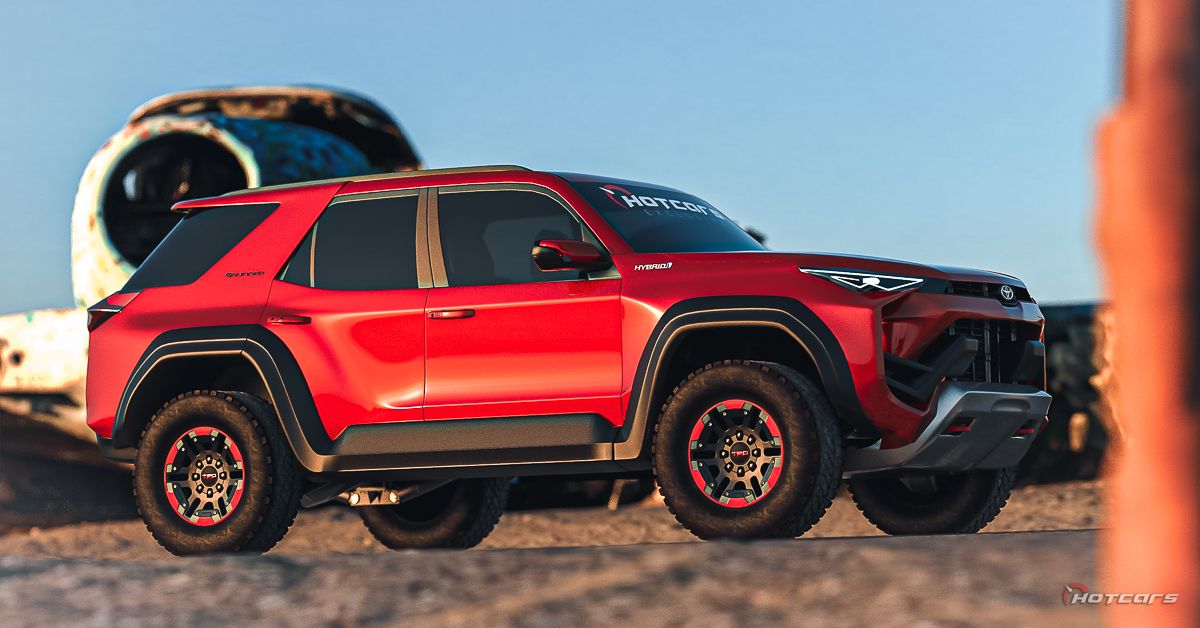The Future of Fuel Efficiency: Examining the Potential of the 2025 Toyota 4Runner
Related Articles: The Future of Fuel Efficiency: Examining the Potential of the 2025 Toyota 4Runner
Introduction
With enthusiasm, let’s navigate through the intriguing topic related to The Future of Fuel Efficiency: Examining the Potential of the 2025 Toyota 4Runner. Let’s weave interesting information and offer fresh perspectives to the readers.
Table of Content
The Future of Fuel Efficiency: Examining the Potential of the 2025 Toyota 4Runner

The Toyota 4Runner, a stalwart in the SUV segment known for its ruggedness and off-road prowess, faces a future where fuel efficiency is increasingly paramount. As the automotive industry navigates the evolving landscape of fuel economy regulations and consumer demand for environmentally conscious vehicles, the 2025 4Runner’s fuel consumption figures will be under intense scrutiny. While predicting specific MPG figures for a vehicle that is yet to be released is challenging, a comprehensive analysis of current trends, technological advancements, and regulatory pressures can provide insights into the potential fuel economy improvements the 2025 4Runner might offer.
The Current Landscape: A Trade-off Between Power and Efficiency
The current generation 4Runner, known for its powerful V6 engine and robust off-road capabilities, prioritizes performance over fuel economy. Its estimated fuel economy figures hover around 17 city/21 highway MPG, highlighting the inherent trade-off between capability and efficiency. This traditional approach, however, faces growing challenges as fuel prices fluctuate, environmental concerns intensify, and government regulations tighten.
Factors Shaping the Future of Fuel Economy
Several key factors will shape the fuel efficiency landscape for the 2025 4Runner:
- Government Regulations: Stringent fuel economy regulations, such as the Corporate Average Fuel Economy (CAFE) standards, are pushing automakers to improve the fuel efficiency of their vehicles. These regulations are likely to become even stricter in the coming years, motivating manufacturers to explore innovative technologies.
- Consumer Demand: Consumers are increasingly prioritizing fuel economy and environmental impact when making vehicle purchasing decisions. This growing demand for fuel-efficient vehicles is driving manufacturers to invest in technologies that enhance efficiency.
- Technological Advancements: The automotive industry is witnessing rapid advancements in hybrid and electric powertrain technologies. These innovations offer the potential to significantly improve fuel efficiency without compromising performance, paving the way for a more sustainable future for the 4Runner.
Potential Fuel Economy Improvements for the 2025 4Runner
While the specific fuel economy figures for the 2025 4Runner remain speculative, several potential avenues for improvement exist:
- Hybrid Powertrain: Incorporating a hybrid powertrain, combining a gasoline engine with an electric motor, could significantly enhance fuel efficiency. This technology has proven successful in other Toyota models and offers a compelling option for the 4Runner, potentially achieving MPG figures comparable to smaller, more efficient SUVs.
- Engine Optimization: Refinements to the existing engine, such as improved combustion efficiency and reduced friction, could yield modest gains in fuel economy. These optimizations could be combined with other technologies to achieve a more substantial improvement.
- Lightweight Materials: Utilizing lightweight materials like aluminum and carbon fiber in the body and chassis construction could reduce the vehicle’s overall weight, leading to improved fuel efficiency. This approach has already been adopted by other manufacturers and could be implemented in the 2025 4Runner.
- Aerodynamic Enhancements: Optimizing the 4Runner’s aerodynamic profile through design modifications like active grille shutters and underbody panels could reduce drag and improve fuel economy. These subtle adjustments can have a noticeable impact on fuel consumption.
- Advanced Drivetrain Technologies: Implementing advanced technologies like start-stop systems, regenerative braking, and variable valve timing could further optimize engine performance and fuel efficiency. These technologies are becoming increasingly common in the automotive industry and could be integrated into the 2025 4Runner.
The Importance of Fuel Efficiency in the 2025 4Runner
Improved fuel efficiency in the 2025 4Runner will offer several benefits:
- Reduced Fuel Costs: Increased fuel efficiency translates directly to lower fuel costs for consumers, making the 4Runner more appealing in a competitive market.
- Environmental Sustainability: Enhanced fuel economy contributes to a reduction in greenhouse gas emissions, aligning with the growing global focus on environmental sustainability.
- Enhanced Performance: Fuel-efficient technologies often enhance engine performance, potentially leading to improved acceleration and overall driving experience.
- Increased Market Competitiveness: Offering a fuel-efficient 4Runner will position Toyota as a leader in the SUV segment, attracting a wider range of environmentally conscious consumers.
FAQs: Understanding Fuel Economy in the 2025 4Runner
Q: Will the 2025 4Runner be a purely electric vehicle?
A: While a fully electric 4Runner is a possibility in the future, it is unlikely for the 2025 model year. The focus for the 2025 4Runner is likely to be on hybrid technology, combining a gasoline engine with an electric motor to improve fuel efficiency without sacrificing the vehicle’s off-road capabilities.
Q: How will the 2025 4Runner’s fuel economy compare to other SUVs?
A: The 2025 4Runner’s fuel economy is expected to be competitive with other SUVs in its segment, especially those offering hybrid powertrain options. However, it is unlikely to match the fuel efficiency of smaller, more aerodynamic SUVs.
Q: Will the 2025 4Runner’s fuel economy impact its off-road performance?
A: Implementing fuel-efficient technologies does not necessarily compromise off-road performance. Hybrid powertrains can provide additional torque and power for challenging terrain, while lightweight materials can improve maneuverability.
Q: What factors will influence the actual fuel economy of the 2025 4Runner?
A: The actual fuel economy of the 2025 4Runner will depend on various factors, including engine size, drivetrain configuration, driving conditions, and driver habits.
Tips for Maximizing Fuel Economy in the 2025 4Runner
- Driving Habits: Practicing fuel-efficient driving techniques, such as smooth acceleration and braking, can significantly improve fuel economy.
- Tire Pressure: Maintaining proper tire pressure can reduce rolling resistance and improve fuel efficiency.
- Vehicle Maintenance: Regular maintenance, including oil changes and air filter replacement, ensures optimal engine performance and fuel economy.
- Avoid Excessive Cargo: Carrying unnecessary weight can reduce fuel efficiency, so minimizing cargo load is beneficial.
Conclusion: A Balanced Approach to Fuel Efficiency and Capability
The 2025 Toyota 4Runner will likely embrace a balanced approach to fuel efficiency and capability. While the iconic SUV’s off-road prowess remains a defining characteristic, the need for improved fuel economy will drive technological advancements and design refinements. The 4Runner’s future lies in embracing hybrid powertrains, lightweight materials, and other innovative technologies to deliver a vehicle that meets the demands of a changing automotive landscape, balancing performance with sustainability for a more fuel-efficient and environmentally conscious driving experience.








Closure
Thus, we hope this article has provided valuable insights into The Future of Fuel Efficiency: Examining the Potential of the 2025 Toyota 4Runner. We thank you for taking the time to read this article. See you in our next article!
